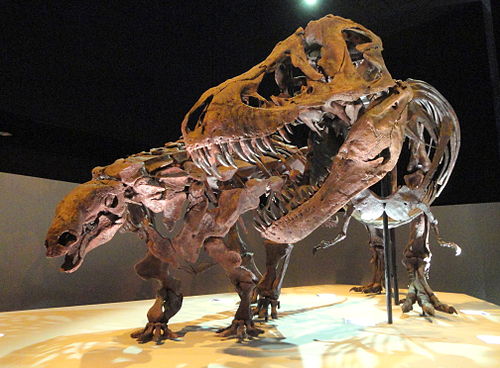Mythologynoun
The collection of myths of a people, concerning the origin of the people, history, deities, ancestors and heroes.
Mythologynoun
A similar body of myths concerning an event, person or institution.
Mythologynoun
Pervasive elements of a fictional universe that resemble a mythological universe.
Mythologynoun
(uncountable) The systematic collection and study of myths.
Mythologynoun
The science which treats of myths; a treatise on myths.
Mythologynoun
A body of myths; esp., the collective myths which describe the gods of a heathen people; as, the mythology of the Greeks.
Mythologynoun
myths collectively; the body of stories associated with a culture or institution or person
Mythologynoun
the study of myths
Sciencenoun
(countable) A particular discipline or branch of learning, especially one dealing with measurable or systematic principles rather than intuition or natural ability.
Sciencenoun
Specifically the natural sciences.
Sciencenoun
Knowledge gained through study or practice; mastery of a particular discipline or area.
Sciencenoun
The fact of knowing something; knowledge or understanding of a truth.
Sciencenoun
(uncountable) The collective discipline of study or learning acquired through the scientific method; the sum of knowledge gained from such methods and discipline.
Sciencenoun
(uncountable) Knowledge derived from scientific disciplines, scientific method, or any systematic effort.
Sciencenoun
(uncountable) The scientific community.
Scienceverb
To cause to become versed in science; to make skilled; to instruct.
Scienceverb
To use science to solve a problem.
Sciencenoun
Knowledge; knowledge of principles and causes; ascertained truth of facts.
Sciencenoun
Accumulated and established knowledge, which has been systematized and formulated with reference to the discovery of general truths or the operation of general laws; knowledge classified and made available in work, life, or the search for truth; comprehensive, profound, or philosophical knowledge.
Sciencenoun
Especially, such knowledge when it relates to the physical world and its phenomena, the nature, constitution, and forces of matter, the qualities and functions of living tissues, etc.; - called also natural science, and physical science.
Sciencenoun
Any branch or department of systematized knowledge considered as a distinct field of investigation or object of study; as, the science of astronomy, of chemistry, or of mind.
Sciencenoun
Art, skill, or expertness, regarded as the result of knowledge of laws and principles.
Scienceverb
To cause to become versed in science; to make skilled; to instruct.
Sciencenoun
a particular branch of scientific knowledge;
Sciencenoun
ability to produce solutions in some problem domain;
Science
Science (from Latin scientia 'knowledge') is a systematic enterprise that builds and organizes knowledge in the form of testable explanations and predictions about the universe.The earliest roots of science can be traced to Ancient Egypt and Mesopotamia in around 3000 to 1200 BCE. Their contributions to mathematics, astronomy, and medicine entered and shaped Greek natural philosophy of classical antiquity, whereby formal attempts were made to provide explanations of events in the physical world based on natural causes. After the fall of the Western Roman Empire, knowledge of Greek conceptions of the world deteriorated in Western Europe during the early centuries (400 to 1000 CE) of the Middle Ages, but was preserved in the Muslim world during the Islamic Golden Age.



























